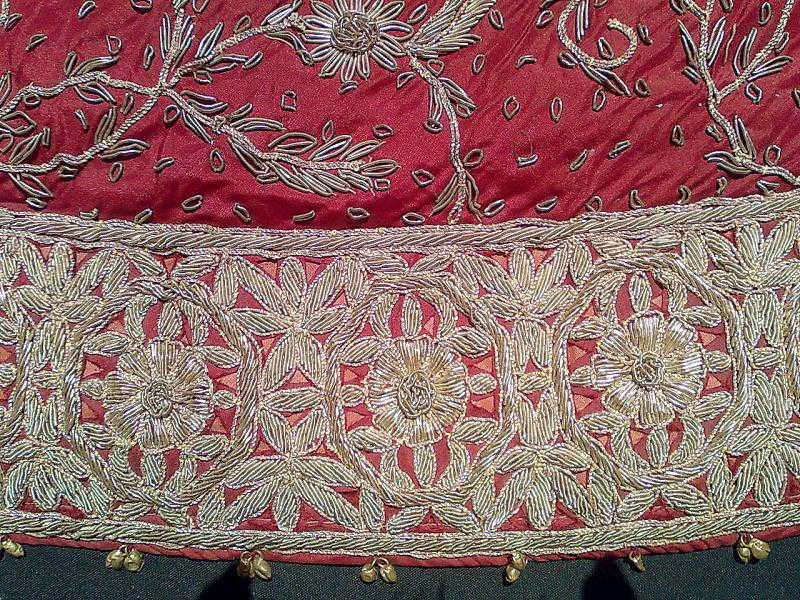===
0721,
5
===

=== |
 |
nahii;N jahaan me;N kis :tarf guft-guu dil se
yih ek qa:trah-e ;xuu;N hai :taraf ;xudaa))ii kaa
1) there's not in the world, in whichever direction, conversation/dispute with/about the heart
2) this is a single/particular/unique/excellent drop of blood that confronts/rivals {Divinity/'the whole world'}
:taraf : 'Extremity, end; limit, term; side, direction; outward or adjacent part or portion; margin, border; corner; region, district, quarter, tract, part'. (Platts p.752)
guft-guu : 'Conversation, discourse, dialogue, common talk, chitchat; altercation, dispute, debate, expostulation, controversy, contention squabble'. (Platts p.910)
;xudaa))ii : 'God. ship, godhead, divinity, providence; almighty power, omnipotence; —creation, nature, the world'. (Platts p.487)
FWP:
SETS == A,B; EK; REPETITION
MOTIFS
NAMES
TERMSAccording to the Qur'an (96:1-2), God created man out of 'a clot of congealed blood'. The lover's heart, after it has been reduced by its sufferings to 'a drop of blood', indeed sometimes acquires in the ghazal world a kind of special potency. But in this verse it's the human heart in general that's at issue, not just the lover's heart, so calling it 'a drop of blood' can be seen as a minimizing metaphor designed to enhance the contrast with its remarkable cosmic power.
Though of course it's also a 'single/particular/unique/excellent' [ek] drop of blood, with all the multivalent possibilities generated by that innocent-looking little word. For indeed, the human heart has such powerful creative possibilities that it 'confronts' or 'rivals' Divinity or 'the whole world' (see the definition above).
The two lines form an 'A,B' pair, and two relationships readily suggest themselves. The first line might be about the truth-status of the second line ('Nobody can possibly deny the fact that the heart is uniquely powerful'). Or it might be about the heart itself ('Nobody argues with the heart, because it's uniquely powerful').
Note for meter fans: SRF points to the enjoyable way that :taraf appears in both lines, with of course two different meanings. And naturally we notice that it has two different scansions as well; :tarf , long-short, is a rare but permissible variation.